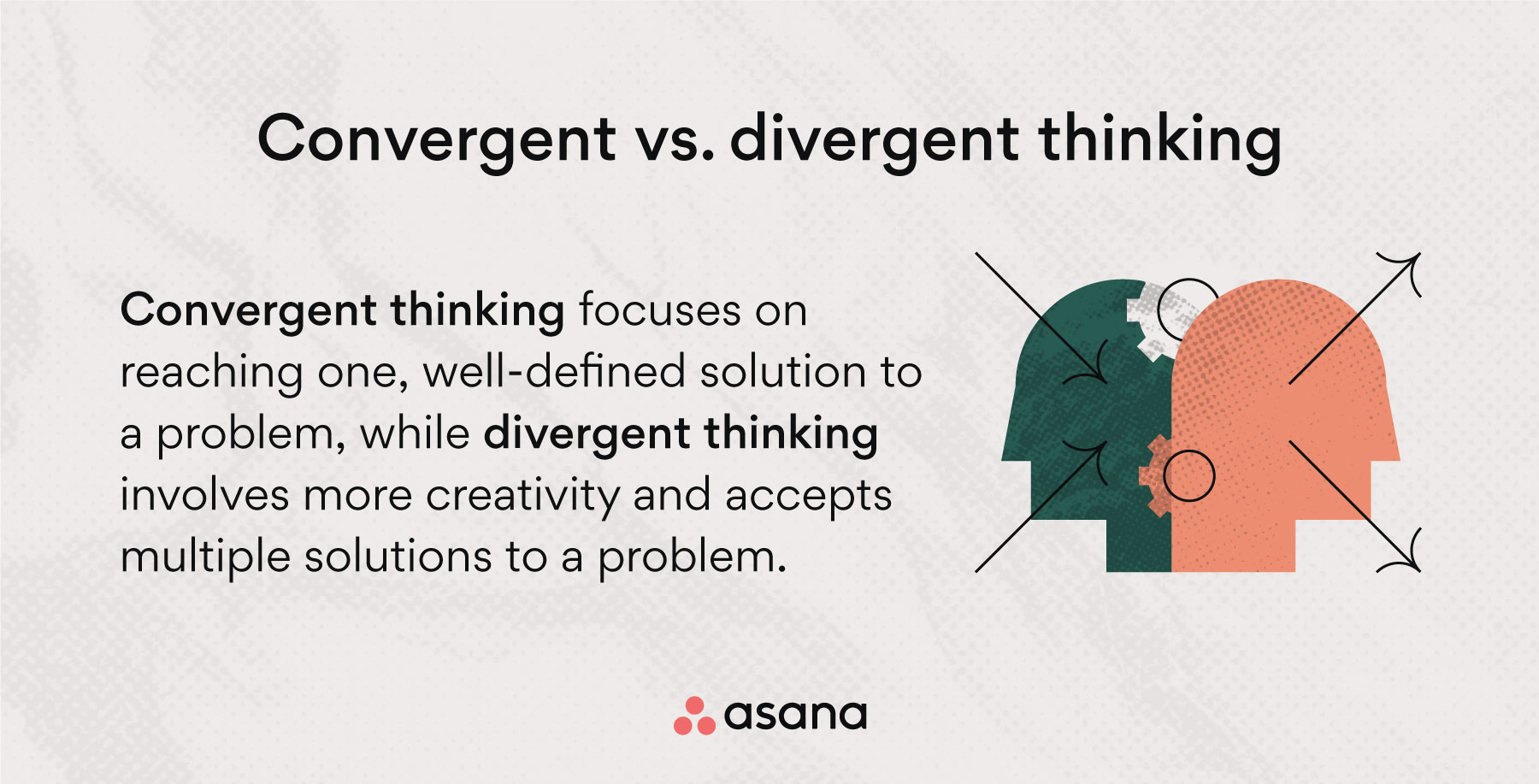CONVERGING AND DIVERGING THINKING AND THE CONCEPT OF CRITICAL READING
CONVERGING THINKING AND DIVERGING THINKING
- Convergent thinking focuses on finding one well-defined solution to a problem.
- Divergent thinking is the opposite of convergent thinking and involves more creativity
CONVERGING THINKING
This type of thinking is best suited for tasks that involve logic as opposed to creativity, such as answering multiple-choice tests or solving a problem where you know there are no other possible solutions.
DIVERGING THINKING
Divergent thinking is the opposite of convergent thinking and involves more creativity. With this type of thinking, you can generate ideas and develop multiple solutions to a problem. While divergent thinking often involves brainstorming for many possible answers to a question, the goal is the same as convergent thinking—to arrive at the best solution.
A quicker way to arrive at a solution
Leaves no room for ambiguity
Encourages organization and linear processes
BENEFITS IN DIVERGING THINKING
Identify new opportunities
Find creative ways to solve problems
Assess ideas from multiple perspectives
Understand and learn from others
CRITICAL READING
Critical reading means that a reader applies certain processes, models, questions, and theories that result in enhanced clarity and comprehension. There is more involvement, both in effort and understanding, A critical reading gets at "deep structure", that is, logical consistency, tone, organization, and a number of other very important sounding terms.

Comments
Post a Comment